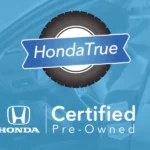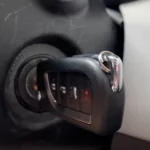Thinking about an extended warranty for your vehicle but overwhelmed by options? You’re facing a choice between industry veterans and newer contenders, each promising to save you from unexpected repair bills. This detailed comparison examines two popular providers—CarShield and Everything Breaks—to help you make a decision that won’t leave you stranded.
CarShield vs Everything Breaks: Company Backgrounds
CarShield’s Market Experience
CarShield entered the extended warranty scene in 2005 and has since covered over 2 million vehicles. Working through American Auto Shield as their administrator, they’ve established themselves as a household name with widespread TV advertising and celebrity endorsements.
Their longevity comes with both benefits and baggage. On one hand, they’ve built a network of 50,000 ASE-certified repair facilities nationwide. On the other, they’ve faced regulatory scrutiny from the Federal Trade Commission over advertising practices, resulting in a settlement in 2024.
Everything Breaks’ Market Position
Everything Breaks is relatively new, having started around 2018. They’ve positioned themselves as a flexible alternative with month-to-month contracts and bundled warranty options covering homes and electronics alongside vehicles.
Their approach emphasizes convenience and transparency in pricing, but they lack the established industry presence of competitors. This newer company handles claims directly rather than working through a third-party administrator, which affects their claims process substantially.
Coverage Options: What’s Protected?
CarShield’s Protection Plans
CarShield offers eight distinct coverage tiers to accommodate different vehicles and budgets:
| Plan Name | Coverage Level | Best For |
|---|---|---|
| Diamond | Bumper-to-bumper (exclusionary) | Newer vehicles needing maximum protection |
| Platinum | Stated component (comprehensive) | High-mileage vehicles with critical systems |
| Gold | Enhanced powertrain plus | Vehicles over 100,000 miles |
| Silver | Basic powertrain | Older vehicles, budget option |
| Aluminum | Specialized electronics | Vehicles with complex tech systems |
| Motorcycle/ATV | Specialized coverage | Recreational vehicles |
| Electric Vehicle | EV components | Electric and hybrid vehicles |
Their standout feature is accommodating vehicles with up to 300,000 miles, making them one of few providers serving high-mileage cars. However, like most warranties, they exclude pre-existing conditions and maintenance unless added separately.
Everything Breaks’ Coverage Structure
Everything Breaks takes a different approach with five coverage options:
| Plan Name | Coverage Description | Monthly Cost |
|---|---|---|
| Critical Coverage | 50% reimbursement (up to $500) with roadside assistance | From $29.88 |
| Standard Powertrain | Basic engine, transmission, drive axle | From $59.88 |
| Enhanced Powertrain | Standard plus cooling and electrical | From $79.88 |
| Deluxe | Enhanced plus AC, steering, brakes | From $89.88 |
| Topline | Comprehensive component coverage | From $109.88 |
Their unique “Critical Coverage” plan sets them apart by offering partial reimbursement rather than full coverage, essentially functioning as a repair discount program with roadside assistance. This budget option appeals to cost-conscious consumers but provides significantly less protection than traditional warranties.
Everything Breaks advertises coverage for vehicles up to 250,000 miles and 20 years old, but requires a 30-day/1,000-mile waiting period before coverage activates.
Cost Comparison: What You’ll Pay
CarShield’s Pricing Structure
CarShield’s monthly premiums typically range from $140-$170, depending on your vehicle’s make, model, age, and mileage. For example, a 2021 Nissan Altima under the Diamond plan might cost $149.99 monthly with a $200 deductible.
Deductible options range from $0-$250, with lower deductibles resulting in higher monthly payments. CarShield offers month-to-month billing without requiring long-term commitments, but also doesn’t provide discounts for paying annually.
Everything Breaks’ Cost Framework
Everything Breaks promotes lower entry points starting at $29.88 monthly for Critical Coverage up to $109.88 for their Topline plan. While these rates appear competitive, multi-year contracts (such as their three-year plan at $3,955.68) don’t offer savings over monthly payments.
Their lower-priced plans come with significant limitations, particularly the Critical Coverage plan that only covers 50% of repair costs up to $500 per incident. Add-ons like maintenance benefits are restricted to long-term subscribers, increasing the effective cost.
Claims Process: The Real Test
CarShield’s Claims Handling
CarShield’s claims procedure follows standard industry practices:
- When your vehicle needs repair, you must contact CarShield before work begins
- After taking your vehicle to an ASE-certified shop, the mechanic submits a repair estimate
- CarShield administrators review and approve eligible repairs
- The company pays the repair facility directly, minus your deductible
They offer 24/7 claims support and roadside assistance, but customer complaints frequently cite issues with claim denials related to “pre-existing conditions” and difficulty reaching representatives during peak times.
Everything Breaks’ Claims Experience
Everything Breaks requires repair shops to obtain pre-approval before beginning work, which has become a major point of friction. According to multiple repair shop reports, mechanics face excessive hold times and unreturned calls when seeking authorization.
The company lacks a dedicated claims department, meaning service representatives handle everything from sales to claims processing. This structure has led to significant delays, with some customers and repair facilities reporting payment waiting periods exceeding three months.
Customer Reputation: What Users Report
CarShield’s Mixed Reviews
CarShield maintains a polarized reputation with strong contrasts between platforms:
- Google Reviews: 4.2/5.0 stars
- Trustpilot: 4.2/5.0 stars
- Better Business Bureau: 1.48/5.0 stars with an “F” grade
The BBB has logged over 1,800 complaints in the past three years, primarily concerning claim denials, cancellation difficulties, and misleading sales tactics. However, CarShield’s high volume of customers naturally results in more complaints than smaller competitors.
Positive reviews consistently mention affordable monthly payments, helpful roadside assistance, and successful major repairs. The company’s longevity suggests they maintain enough satisfied customers to sustain their business model.
Everything Breaks’ Troubling Trends
Everything Breaks faces significant reputational challenges:
- Better Business Bureau: 2.8/5.0 stars
- Widespread complaints on forums like Reddit and Yelp
- Reports of repair shops refusing to work with the company
Customer criticism focuses on three main areas: unpaid claims, unresponsive customer service, and aggressive telemarketing. Many user reviews describe difficulty canceling policies and unauthorized credit card charges continuing after cancellation requests.
The company’s poor reputation has led some repair facilities to boycott Everything Breaks entirely, further limiting options for their customers.
Key Differentiators: What Sets Them Apart
CarShield’s Unique Selling Points
CarShield distinguishes itself through:
- Specialized plans for EVs, motorcycles, and ATVs
- Coverage for vehicles up to 300,000 miles
- Established repair network with 50,000+ facilities
- No long-term commitment required
Their size and experience have allowed them to develop niche offerings for different vehicle types while maintaining strong repair shop relationships, despite ongoing customer service challenges.
Everything Breaks’ Distinctive Approach
Everything Breaks attempts to differentiate with:
- Lower entry-level pricing
- Bundled warranty options (home, electronics, auto)
- The unique “Critical Coverage” hybrid plan
- Transparent pricing structure
Their bundled approach targets consumers seeking simplified protection across multiple products, but execution problems have undermined their value proposition.
Making Your Decision: Which Provider Makes Sense?
When CarShield Is The Better Choice
Consider CarShield if:
- You have a high-mileage vehicle that other providers won’t cover
- You need specialized coverage for an EV, motorcycle, or ATV
- You prefer an established company with a large repair network
- You want month-to-month flexibility without long-term commitment
Despite their mixed reputation, CarShield’s longevity and specialized plans make them suitable for vehicles that might otherwise be difficult to cover.
When Everything Breaks Might Work
Everything Breaks might be appropriate if:
- You’re extremely budget-conscious and understand coverage limitations
- You need very short-term coverage without commitment
- You want to bundle multiple warranty types (home, auto, electronics)
- You’re comfortable with a higher-risk warranty provider
The company’s low entry point makes it tempting for budget shoppers, but their problematic claims process presents substantial risk.
Alternatives Worth Considering
Before committing to either provider, consider other reputable extended warranty companies like:
- Endurance: Direct provider with strong customer service reputation
- CARCHEX: Established broker with transparent contracts
- Protect My Car: Offers hybrid maintenance/repair plans
- Toco Warranty: Simplified plans with manageable monthly payments
These alternatives maintain better customer satisfaction ratings and might offer more reliable coverage than either CarShield or Everything Breaks.
What The Experts Say
Industry analysts observe that third-party warranty providers often struggle with balancing affordability and claim approval rates. The Federal Trade Commission has highlighted concerns with extended warranty advertising across the industry, not just with CarShield.
Automotive professionals remain skeptical of both providers, with many mechanics reporting difficulties working with third-party warranties generally. The National Highway Traffic Safety Administration doesn’t regulate extended warranties directly but advises consumers to thoroughly research any aftermarket coverage.
Final Verdict
In the CarShield vs Everything Breaks comparison, neither emerges as an ideal choice, but CarShield offers a more established option despite its flaws. Their industry experience, diverse coverage options, and accommodations for various vehicle types provide advantages that Everything Breaks can’t match.
Everything Breaks’ lower entry pricing appears attractive but comes with substantial risks regarding claims approval and payment reliability. Their customer service issues and repair facility relationships raise serious concerns about their ability to deliver when needed most.
Before purchasing any extended warranty, get quotes from multiple providers, read contract terms carefully, and consider whether your vehicle’s reliability history justifies the ongoing expense. Remember that the best warranty is one that delivers when you actually need it—not just the one with the lowest monthly payment.



